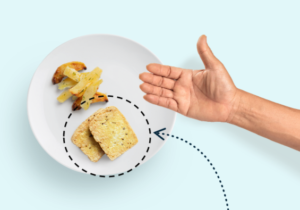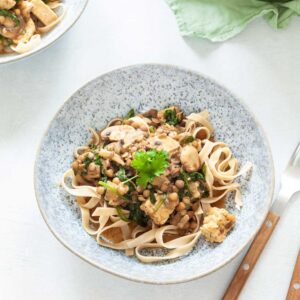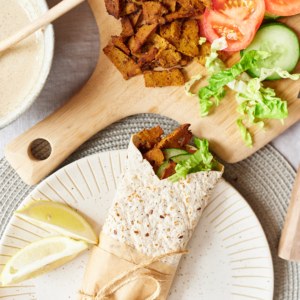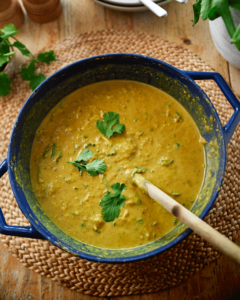Jump to: The 5 best vegan protein sources – dietitian recommended
While vegan diets are rising in popularity, there remain concerns about whether people following a vegan diet can obtain enough protein to support the body’s requirements for the growth and development of new cells. This includes other essential functions protein provides, such as supporting our immune system.
While research suggests that vegans consume less protein than meat-eaters and vegetarians, this tends to be more of an issue with the application of the diet rather than being impossible to do.
You can achieve your protein requirements on a vegan diet; it might need a bit more attention. To ensure you’re getting enough protein on a vegan diet, there are two key points of focus:
- Ensuring you’re eating enough total protein: to achieve optimum health, this is recommended to be at least 1.2-1.6g per kilogram of body weight (g/kg/BW). This would be around 20-40g of protein in each meal or 25-30% of your plate.
- Ensuring you’re consuming all essential amino acids: plant-based proteins tend to be limited by having low levels of one or two amino acids. By combining different protein sources, you can ensure you’re meeting your requirements.

At Second Nature, you’re supported by a registered dietitian or nutritionist who can personalise your diet to your lifestyle, preferences, and goals.
Join people like Sarah who’ve made weight loss feel easier on our programme while following a plant-based diet. All you’d need to do to start is click here to take our health quiz.
Below, we’ve put together five of the best vegan protein sources you should include in your diet to ensure you’re providing your body with everything it needs.
We’ve also included what these foods should be paired with to ensure you’re meeting your amino acid requirements and attached links to recipes for inspiration.
*All nutritional information obtained from the USDA’s Food Data Central*








